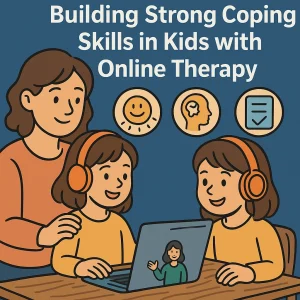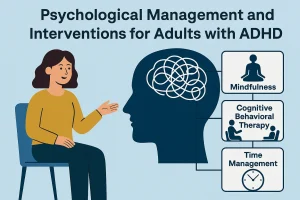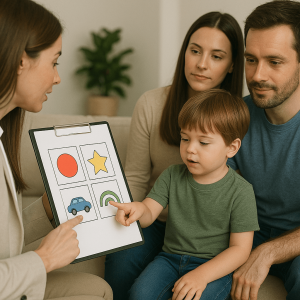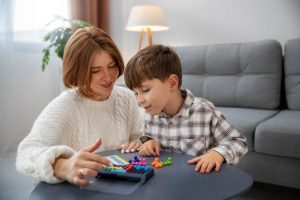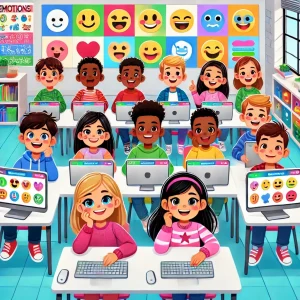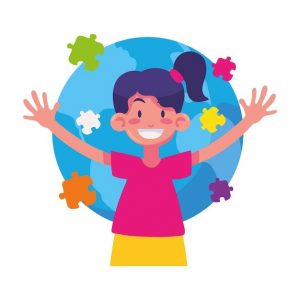Improving Child Emotional Regulation through Behavioral Therapy
Last Updated: January 9, 2025
Child emotional regulation refers to a child’s ability to manage and respond to emotional experiences in a healthy way. This involves recognizing their emotions, understanding what triggers them, and knowing how to react appropriately. It’s about finding a balance – not overreacting or under-reacting to situations, but instead responding in a way that is socially acceptable and personally beneficial.
Why is Emotional Regulation Essential for a Child’s Development?
Emotional regulation is crucial for a child’s overall development. It plays a significant role in:
- Social Interactions: Children who can manage their emotions are better at forming and maintaining healthy relationships. They are more likely to have positive interactions with peers and adults.
- Academic Success: Regulating emotions helps children stay focused and engaged in learning activities, which can lead to better academic performance.
- Mental Health: Good emotional regulation can prevent the development of mental health issues such as anxiety and depression. It provides children with the tools they need to cope with stress and bounce back from setbacks.
- Behavioral Control: Children with strong emotional regulation skills are less likely to exhibit disruptive behaviors. They can control impulses and handle frustration more effectively.
Also read: Supporting Emotional Regulation in Kids: Simple Ways to Help
Common Challenges Children Face with Emotional Regulation
Despite its importance, many children struggle with emotional regulation. Here are some common challenges:
- Identifying Emotions: Younger children, in particular, may find it hard to identify and label their emotions accurately. They might know they feel “bad” but not understand whether it is sadness, anger, or something else.
- Expressing Emotions Appropriately: Even when children recognize their emotions, expressing them in a healthy way can be difficult. They might resort to tantrums, aggression, or withdrawal when they feel overwhelmed.
- Coping with Strong Emotions: Strong emotions like anger or fear can be particularly challenging for children to manage. Without proper strategies, they might struggle to calm down and think clearly.
- Influence of External Factors: Stressful environments, such as conflicts at home or bullying at school, can exacerbate emotional regulation difficulties. These external factors can make it harder for children to maintain emotional balance.
Common Issues Addressed by Behavioral Therapy
| Issue | Symptoms | Behavioral Therapy Techniques | Expected Outcomes |
|---|---|---|---|
| Anxiety Disorders | Excessive worry, avoidance behavior | Cognitive-Behavioral Therapy (CBT), Mindfulness | Reduced anxiety, improved coping skills |
| Depression | Persistent sadness, loss of interest | Cognitive-Behavioral Therapy (CBT) | Improved mood, increased engagement |
| ADHD | Impulsivity, inattention | Behavior modification, Social skills training | Better focus, enhanced self-control |
| Oppositional Defiant Disorder (ODD) | Defiance, anger outbursts | Parent-child interaction therapy | Improved behavior, better communication |
| Eating Disorders | Distorted body image, restrictive eating | Cognitive-Behavioral Therapy (CBT) | Healthier eating habits, improved self-esteem |
| Low Self-Esteem | Negative self-view, avoidance | Positive reinforcement, Goal-setting | Increased confidence, better social interaction |
The Role of Behavioral Therapy in Emotional Regulation
What is Behavioral Therapy?
Behavioral therapy is a form of psychological treatment that focuses on changing negative behaviors and thought patterns. The primary objectives of behavioral therapy are to help individuals identify harmful behaviors, understand the underlying causes, and develop strategies to replace them with healthier alternatives. This type of therapy is action-oriented, with a strong emphasis on current problems and how to solve them.
How Behavioral Therapy Helps Children Recognize and Manage Their Emotions
Behavioral therapy is particularly effective for children because it provides them with practical tools to understand and regulate their emotions. Here’s how it works:
- Identification of Emotions: Children learn to recognize and label their emotions accurately. This awareness is the first step toward managing their feelings effectively.
- Understanding Triggers: Therapy helps children identify what triggers their emotional responses. Whether it’s a specific situation, thought, or interaction, understanding these triggers is crucial.
- Developing Coping Strategies: Children are taught various techniques to manage their emotions. These might include deep breathing exercises, positive self-talk, or distraction techniques.
- Practicing New Behaviors: Through role-playing and other interactive methods, children practice responding to emotional triggers in healthier ways.
Behavioral Therapy Techniques that Aid in Emotional Regulation
There are several behavioral therapy techniques that are particularly effective in improving emotional regulation in children:
- Cognitive-Behavioral Therapy (CBT): CBT is a widely used technique that helps children reframe negative thoughts and behaviors into positive ones. It focuses on the connection between thoughts, emotions, and behaviors, teaching children to develop healthier thinking patterns.
- Mindfulness-Based Therapy: This technique involves teaching children mindfulness practices, such as meditation and breathing exercises, which help them stay present and manage stress. Mindfulness helps children become more aware of their emotions without being overwhelmed by them.
- Dialectical Behavior Therapy (DBT): DBT is a form of CBT that focuses on teaching skills for emotional regulation, distress tolerance, and effective communication. It is particularly useful for children who experience intense emotions and struggle to manage them.
- Play Therapy: Play therapy uses play as a means for children to express their emotions and experiences. It helps therapists understand the child’s emotional state and provides a safe space for children to explore and resolve their feelings.
Know more about on Emotional Regulation for Kids: Easy Tips and Activities
Benefits of Behavioral Therapy for Child Emotional Regulation
Improved Self-Control and Coping Skills
- Learning and Management: Behavioral therapy teaches children how to recognize and manage their emotions effectively.
- Enhanced Self-Control: Helps children control their reactions in various situations, promoting calmness under pressure and thoughtful decision-making.
- Coping Strategies: Introduces practical tools like deep breathing and positive self-talk, which are crucial for handling stress and challenges.
Enhanced Emotional Awareness and Stability
- Deeper Emotional Understanding: Children learn to identify different emotions and their triggers, enhancing their emotional intelligence.
- Increased Stability: With better emotional awareness, children are less likely to feel overwhelmed and more capable of maintaining a balanced state of mind.
Reduction in Anxiety and Depressive Symptoms
- Effective Techniques: Uses Cognitive-Behavioral Therapy (CBT) to help children reframe negative thoughts and foster healthier thinking patterns.
- Alleviation of Symptoms: Significant reduction in anxiety and depression, enhancing overall mental health and well-being.
Better Management of Anger and Frustration
- Role-Playing and Interactive Methods: Children engage in role-playing to practice and learn how to respond to emotional triggers healthily, reducing outbursts and aggressive behaviors.
- Constructive Handling of Emotions: Provides strategies for children to deal with intense emotions like anger and frustration in constructive ways.
Key Techniques in Behavioral Therapy for Emotional Regulation
Cognitive-Behavioral Therapy (CBT)
- CBT helps children understand how their thoughts, emotions, and behaviors are connected. It teaches them to identify and change negative thinking patterns into positive ones. For example, a child worried about school can learn to replace fears of failure with positive thoughts and realistic goals.
Mindfulness-Based Therapy
- This therapy teaches children mindfulness techniques like deep breathing, meditation, and body scans. These practices help children stay present and manage stress by observing their thoughts and feelings calmly, enhancing their emotional stability.
Dialectical Behavior Therapy (DBT)
- DBT is helpful for children with intense emotions and difficulty with distress tolerance. It integrates elements of CBT with mindfulness, focusing on emotional regulation, distress tolerance, interpersonal effectiveness, and mindfulness. DBT skills help children handle emotions, cope with tough situations, communicate better, and remain mindful.
Play Therapy
Play Therapy uses play as a way for children to express and manage their emotions. In a safe therapeutic environment, children play out their feelings and issues. This method is great for younger kids who might struggle to express their emotions verbally, helping them process their feelings and develop coping mechanisms in a fun and natural way.
Practical Steps for Parents to Support Emotional Regulation at Home
Encourage Open Communication About Emotions
- Make it easy for your child to talk about their feelings by creating a welcoming and non-judgmental space. Ask questions that get them to open up, like “How did that make you feel?” or “What upset you?” This helps them recognize and express their emotions more freely.
Model Healthy Emotional Responses
- Show your child how to handle emotions by managing your own in a healthy way. For instance, if you’re feeling upset, you might say, “I’m upset right now, so I’m going to take deep breaths to calm down.” This teaches them practical ways to deal with their feelings.
Create a Supportive and Structured Environment
- Kids thrive in environments where they know what to expect. Maintain regular routines, like bedtime and meal times, to lessen their stress. Make sure your home is a place where your child feels loved and supported—spend time together and listen to them when they need to talk.
Use Positive Reinforcement and Praise
Notice and commend your child when they handle their emotions well. For example, if they stay calm during a frustrating situation, you could say, “You handled that really well when your toy broke. I’m proud of you.” Positive feedback encourages them to keep using good emotional regulation techniques and helps build their confidence.
Common Issues Addressed by Behavioral Therapy
Anxiety Disorders
- Many children face anxiety, and behavioral therapy teaches them to identify what causes their anxiety and how to manage it. Cognitive-Behavioral Therapy (CBT), for example, helps children change negative thoughts and behaviors related to their fears, encouraging them to adopt positive affirmations and realistic perspectives.
Depression
- When children are persistently sad, irritable, or lose interest in activities, behavioral therapy can help. It uses CBT to help children recognize and change negative thought patterns, improving their mood and engagement in life.
Attention-Deficit/Hyperactivity Disorder (ADHD)
- For symptoms like impulsivity and inattention, behavioral therapy offers strategies to improve focus and self-control. Techniques include behavior modification and social skills training to help children manage their behavior and interact better with others.
Oppositional Defiant Disorder (ODD)
- ODD involves angry and defiant behavior. Behavioral therapy equips children with tools to better understand and control their emotions, communicate effectively, and solve problems in constructive ways.
Eating Disorders
- Conditions like anorexia and bulimia are addressed by changing unhealthy thoughts and behaviors about food and body image. Therapy helps develop a healthier relationship with food and a better self-image.
Low Self-Esteem
Behavioral therapy boosts children’s confidence and self-worth through positive reinforcement, goal-setting, and teaching them to recognize their strengths and manage weaknesses, enhancing their emotional well-being.
How to Find the Right Behavioral Therapist
Choosing the right behavioral therapist for your child is crucial for their success in therapy and overall well-being. Here are some practical tips to help you find a qualified therapist:
Tips on Choosing a Qualified Therapist
- Check Credentials and Experience: Ensure that the therapist is licensed and has relevant qualifications in child psychology or behavioral therapy. Look for someone with experience in dealing with issues similar to your child’s.
- Seek Recommendations: Ask for referrals from your child’s pediatrician, teachers, or other parents. Personal recommendations can provide valuable insights into the therapist’s approach and effectiveness.
- Research Specializations: Some therapists specialize in specific areas such as anxiety, ADHD, or autism. Finding a therapist with expertise in your child’s particular needs can make a significant difference.
- Evaluate Therapeutic Approach: Different therapists may use various methods, such as Cognitive-Behavioral Therapy (CBT), play therapy, or mindfulness-based techniques. Choose a therapist whose approach aligns with your child’s needs and your family’s values.
- Assess Availability and Accessibility: Consider the therapist’s location, availability for sessions, and whether they offer online therapy options, which can be more convenient for busy families.
How Wellness Hub Can Assist in Finding the Right Behavioral Therapist
Finding the right therapist can be a daunting task, but Wellness Hub is here to help. Our platform provides access to a network of qualified behavioral therapists who specialize in various areas of child emotional regulation. By using Wellness Hub, you can:
- Explore Verified Listings: Browse profiles of licensed therapists with verified credentials and specializations.
- Read Reviews: Benefit from reviews and ratings from other parents to make an informed choice.
- Convenient Booking: Easily schedule appointments and find therapists who offer flexible session times, including online therapy options.
- Personalized Recommendations: Receive personalized therapist recommendations based on your child’s specific needs and challenges.
Conclusion
Behavioral therapy offers many benefits for improving child emotional regulation. It helps children recognize and manage their emotions, which leads to better self-control, reduced anxiety, and improved overall emotional stability. Children who undergo behavioral therapy often develop better coping skills and can handle anger and frustration more effectively.
If your child struggles with emotional regulation, considering behavioral therapy could be very helpful. It provides the tools they need to handle their feelings and respond to challenges in a healthy way. At Wellness Hub, we can help you find the right therapist and provide support throughout the process. Visit Wellness Hub to learn more about how we can assist you and your child.
Frequently Asked Questions:
1. What is child emotional regulation?
Child emotional regulation refers to the ability of children to manage and respond to their emotional experiences in a healthy way. This involves recognizing emotions, understanding what triggers them, and knowing how to react appropriately.
2. How does behavioral therapy help with child emotional regulation?
Behavioral therapy helps children recognize and manage their emotions by teaching them coping strategies and modifying negative thought patterns. Techniques like Cognitive-Behavioral Therapy (CBT) and mindfulness-based therapy are commonly used to improve emotional regulation.
3. What are the benefits of behavioral therapy for children?
Behavioral therapy provides numerous benefits, including improved self-control, enhanced emotional awareness, reduced anxiety and depressive symptoms, and better management of anger and frustration. It equips children with practical tools to handle their emotions effectively.
4. What techniques are used in behavioral therapy for emotional regulation?
Key techniques include Cognitive-Behavioral Therapy (CBT), mindfulness-based therapy, Dialectical Behavior Therapy (DBT), and play therapy. These methods help children reframe negative thoughts, manage stress, and express their emotions healthily.
5. Can behavioral therapy help with anxiety disorders in children?
Yes, behavioral therapy, especially CBT, is highly effective in treating anxiety disorders in children. It helps them identify anxiety triggers, develop coping mechanisms, and replace negative thoughts with positive ones.
6. How does behavioral therapy address ADHD in children?
Behavioral therapy helps children with ADHD by teaching self-control and organizational skills. Techniques like behavior modification and social skills training improve focus, reduce impulsivity, and enhance interactions with others.
7. Is behavioral therapy effective for children with depression?
Yes, behavioral therapy is effective for children with depression. It helps them recognize and challenge negative thoughts, set achievable goals, and engage in positive activities, leading to improved mood and outlook on life.
8. How can parents support their child’s emotional regulation at home?
Parents can support their child’s emotional regulation by encouraging open communication about emotions, modeling healthy emotional responses, creating a supportive environment, and using positive reinforcement and praise.
9. How can I find the right behavioral therapist for my child?
To find the right therapist, check their credentials and experience, seek recommendations, research their specializations, evaluate their therapeutic approach, and assess their availability. A good therapist-child relationship is also crucial for effective therapy.
10. How can Wellness Hub assist in finding a behavioral therapist?
Wellness Hub provides access to a network of qualified behavioral therapists. You can browse profiles, read reviews, schedule appointments, and receive personalized recommendations to find the right therapist for your child’s needs.
About Author:
Lasya Vooturi
Clinical Psychologist (A) and Behavioral Therapist
Lasya holds a Professional Diploma in Clinical Psychology from Amity University, where she deepened her understanding of psychological principles from March 2023 to March 2024. With over a year of dedicated experience as a Behavioral Therapist, Lasya has honed her skills in applying effective therapy techniques tailored to individual needs. Fluent in Telugu, Hindi, and English, she is adept at connecting with a diverse range of clients, ensuring comprehensive communication and understanding. Lasya’s approach is grounded in empathy and scientific rigor, making her a trusted ally in navigating mental health challenges.
Book your Free Consultation Today
Parent/Caregiver Info:
Client’s Details:
* Error Message
